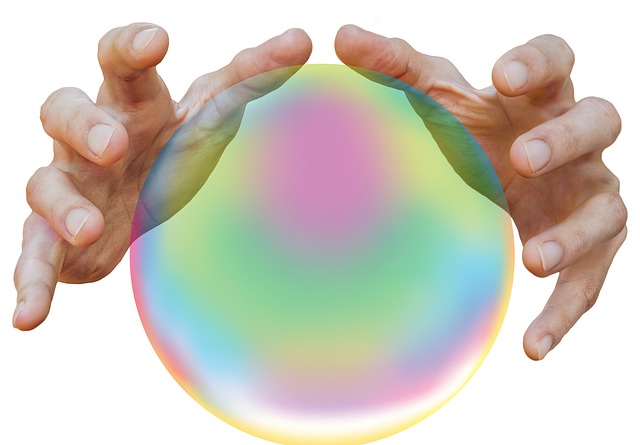In our most recent post, we talked about the differences between past tenses, namely, le passé composé vs l’imparfait. Today, we will talk about expressing the future. Fortunately, the French future tenses are not as complicated as their cousins.
Talking about the future is much simpler. We use two structures: le futur simple (simple future) and le futur proche (the near future, also known as idiomatic future).
Let’s describe each one of them and see a few examples. Can they be used interchangeably? Do they express the same idea? Are there any exceptions to them? Let’s answer these questions as in much detail as possible. C’est parti!
Le Futur Simple
Le futur simple is used to talk about actions or events that will take place sometime in the future. it’s the equivalent of the English future tense (will + main verb).
We use this structure to express:
- Intentions
- Predictions or suppositions
- Cause and effect
To form le futur proche, we don’t use any auxiliaries. We simply add one of the following suffixes to the main verb: -ai, -as, -a, -ons, -ez, and -ont. Thus, to conjugate penser (to think), we have je penserai, tu penseras, il/elle pensera, nous penserons, vous penserez, and ils/elles penseront.
Let’s look at some examples.
Je nettoierai la maison demain. I will clean the house tomorrow. (future intention)
Tu ne pourras pas terminer la pizza toi-même. You will not be able to finish the pizza by yourself. (prediction)
Si vous n’étudiez pas, vous échouerez à votre examen. If you don’t study, you will fail your exam. (cause-effect)
Le Futur Proche
By contrast, le futur proche is used to talk about actions or events that will happen or are anticipated in the very near future. This structure is formed by using the corresponding conjugation of aller + an infinitive verb. It’s the same as the English going to + verb.
Do you remember the conjugations of aller? Don’t worry. Let’s review them quickly.
je vais
tu vas
il/elle va
nous allons
vous allez
ils/elles vont
Let’s look at some examples.
Je vais finir mes devoirs ce soir. I’m going to finish my homework tonight.
Qu’est-ce que tu vas commander? What are you going to order?
Il va pleuvoir demain. It’s going to rain tomorrow.
What’s the Difference?
You may now be wondering if both structures can be used interchangeably, right? Well, in many cases, the answer is yes. Look at the following examples:
Cet hiver, je vais aller au Mexique = Cet hiver, j’irai au Mexique. This winter I’m going to go/will go to Mexico.
Tu vas téléphoner à ta copine? = Tu téléphoneras à ta copine? Are you going to call/Will you call your girfriend?
Ce soir, on va aller au cinema = Ce soir, on ira au cinema. This evening we’re going to go to the movies.
However, in some cases, we can only use one structure. For example, we only use le futur simple in the following cases:
After quand, lorsque, dès que.
Quand je serai grand, je serai astronaute. When I grow up, I’ll be an astronaut.
With expressions like un jour, dans 5 ans, etc.
Un jour, j’aurai ma propre maison. I will have my own house one day.
When expressing a condition.
S’il ne pleut pas demain, on ira au parc. If it doesn’t rain tomorrow, we will go to the park.
The key is immediacy. If something will happen or is expected to happen soon, then you should use le futur proche instead.
Keep in mind that in everyday life, most people use le futur proche. You could use either structure in many cases as we mentioned above, but if you want to sound more French, stick to le futur proche as much as possible.
Present or Future?
In some cases, you can use the simple present tense to talk about the future, just like you would do in English.
Ce soir, on danse! We’re dancing tonight!
Je travaille ce week-end. I’m working this weekend.
Note that we need to specify a time when doing this. If you don’t, then it’s understood you’re talking about the present and not the future. Context is everything!
Negative and Interrogative Sentences
The same rules we saw in a previous post apply here. For negative sentences, we have to use ne + pas (or some other negative word depending on the idea being expressed). Example: Je n‘irai pas à la fête/Je ne vais pas aller à la fête (I won’t go to the party/I’m not going to go to the party).
The order of the words in future questions is the same as questions in other tenses. Examples: Est-ce que tu vas aller à la fête?/Est-ce que tu iras à la fête?/Vas-tu aller à la fête?/Iras-tu à la fête? All of these questions mean Will you go/Are you going to go to the party?
Exercises
Here are a few exercises so you can practice. The verb you have to use is in parentheses.
On ____________ un film ce soir. (regarder)
Un jour j’/je _____________ en France. (habiter)
Je _______________ à 21h. (se coucher)
Si elle va en Espagne, elle ______________ l’espagnol. (apprendre)
Nous n’____________ au parc. (aller)
Dans deux ans j’/je ____________ une voiture. (acheter)
Correct answers:
va regarder
habiterai
vais me coucher
apprendra
allons pas aller/irons pas
acheterai
For more exercises, you can visit the following sites:
https://francais.lingolia.com/en/grammar/tenses/le-futur-simple/exercises
https://francais.lingolia.com/en/grammar/tenses/le-futur-compose/exercises
Conclusion
There you have it. To talk about future actions, we normally use either le futur simple or le futur proche. In many cases, they’re interchangeable, but in others, you have to prefer one over the other depending on the context. Also, keep in mind le futur proche is more commonly used, so I recommend you stick to it when possible.
What do you think? Which structure do you prefer? Let me know in the comments section below. Au revoir, les amis!



The gramatical aspects of French remind me a lot of Spanish. I am glad I can speak Spanish and it has made the process of learning french much easier. Future tense in English is super simple. In Spanish it’s more complex and I tend to link wht I already know from Spanish to what I am currently learning of French.
Hey, Ann,
Yes, Spanish and French share several similarities since both of them derive from Latin. Just one recommendation: Don’t rely too much on translation, even though both languages are similar. That doesn’t always work.
Thanks for commenting.
Great idea learning French on a website post. Of course, the “le futur proche” which is more commonly used is preferable. The covid lockdown gives us a perfect chance to learn a new language, you can focus on learning a lot due to social distancing. I am learning Japanese using apps and online courses. Good information to access new knowledge on line.
Au revoir, les amis! See You next time.
Hi,
Yes, online education has grown exponentially over the last few months.
If you would like to learn more about which apps to use to learn French, you can click here. I think it’s also important to hire a teacher/tutor for some guidance. To find one, click here.
Thanks for commenting.